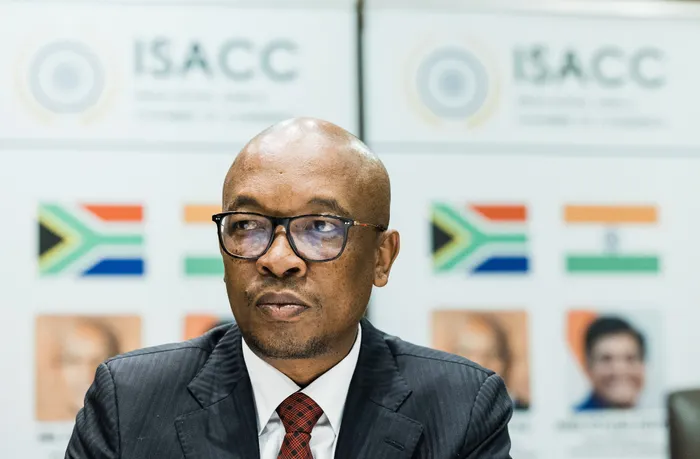South Africa pushes for tariff negotiations with US despite silence from Washington
US TARIFFS

The dtic Minister Parks Tau said South Africa was not in a unique position as the US attempts to finalise negotiations with some 185 countries around the world.
Image: Independent Media Archives
South Africa’s government has reiterated its commitment to secure a favourable tariff deal with the United States, despite a conspicuous lack of communication from Washington D.C.
The looming potential of a 30% levy on South African exports has sparked concern as businesses brace for what could significantly impact trade relations between the two nations.
The Department of Trade, Industry and Competition (the dtic) on Tuesday said negotiations remained the best tool to deal with the issues that are on the table.
The dtic Minister Parks Tau said South Africa was not in a unique position as the US attempts to finalise negotiations with some 185 countries around the world.
Tau said the government remained committed to the cause as it awaited substantive feedback from the US counterparts on the final status on its Framework deal.
“The intersection of geopolitical, domestic and trade issues best defines the current impasse between South Africa and the United States, and a reset is unavoidable,” Tau said.
“As the Department of Trade, Industry and Competition, we have been in a period of intense negotiations with the United States. We have signed a condition precedent document and have readied our inputs for entry into the template which is to follow from the US.
“Despite the challenges that have been presented by this period, we have put our best foot forward, bringing together the subject specialists within our ranks that have dug deep to ensure that our country is adequately prepared for a number of potential scenarios. We have planned for these scenarios and have not sat idle.
“We are working with other government departments on a response plan which includes a support desk within the dtic. Our response package also focuses on demand side interventions in the impacted industries.”
Tau said South Africa’s Framework deal to the US featured a number of areas including and not limited to importing 75-100 petajoules of Liquified Natural Gas for a 10 year period, which would unlock $12 billion; agricultural market access by simplifying of US poultry exports under the 2016 tariff rate quota and unlock approximately $91 million in trade.
In addition, readiness to open market access for blueberries subject to necessary protocols. Tau said South African firms committed to invest $3.3bn in US industries such as mining and metals recycling, while both governments agreed to pursue joint investment in critical minerals, pharmaceuticals, and agrimachinery.
The Framework also proposes an exemption of specific sectors from reciprocal tariffs to preserve supply chains such as ship building, counter-seasonal agriculture trade, exports from Micro, Small and Medium Enterprises of less than $1m per annum.
“The way forward is clear. President [Cyril] Ramaphosa has expressed our willingness to reset the trade relationship with the US and develop a solution which is mutually beneficial,” tau said.
“The dtic has made this issue an apex priority since well before 2 April 2025, and we have centred South Africa and her people as our non-negotiable. Rest assured, we will not waiver in our mission to ensure we make South Africa prosper.”
Meanwhile, Presidential Special Envoy to North America, Mcebisi Jonas, on Tuesday said there’s a pressing need for South Africa to diversify its export markets, moving beyond traditional trading partners to engage with emerging powers in Asia, the Middle East, and Latin America.
Speaking at a seminar hosted by the Kgalema Motlanthe Foundation, said the African Continental Free Trade Area has shown promise, yet current crises underscored the need for more robust regional integration efforts to improve economic resilience and collaboration.
“Export diversification is a key imperative that South Africa should take up as part insurance against market concentration, but also as a source of resilience. For South Africa and Africa as a whole, the economic implications of China's growth and consequent reconfiguration of the global economy are somewhat contradictory. China has become a large investor in African development,” Jonas said.
“The USA remains a central player in global development. South Africa's relationship with the US is crucial. And it is not transactional. But based on a long partnership rooted in shared values of democracy, justice, and progress. In the immediate term, South Africa is engaged in negotiations with the US to reach a solution on the tariff impasse. But beyond that, I think there is a conversation going on improving the relations between the two countries.”
BUSINESS REPORT